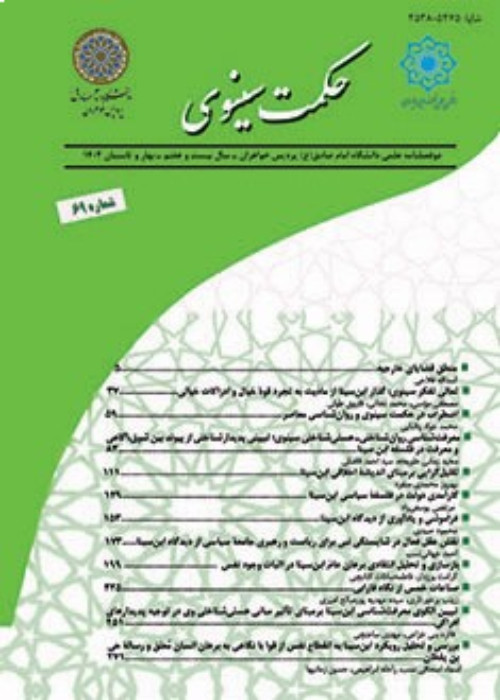A Comparative Study on Self-awareness in John Searle's and Avicenna's Thoughts
There has always been a deep link between the possibility of self-experience and the proof of "self" existence. Some philosophers, like Hume, have inferred that "self" cannot exist because it cannot be experienced. Now, in this paper, we review Searle's "formal self" theory and state that in spite of his denial of experimentable self, he believes in some kind of formal and linguistic self to provide the meaning of some philosophical statements. Then, by probing Avicenna's writings, it turns out he believes that self-awareness is evident, non-obtainable, ipso facto, and can be used to prove self. Besides, he accepts that it is possible to ignore this evident thing and only real cogitators are able to appreciate themselves in the colorless and formless scheme. On the other hand, Avicenna gives many language founding proofs to support the idea of experimentability of "self" which can be regarded as a common line of him and Searle and can present his role in contemporary philosophy. The main aim of this paper is to relate two philosophers of two schools-one denies self-awareness explicitly and the other suppose it evident.
- حق عضویت دریافتی صرف حمایت از نشریات عضو و نگهداری، تکمیل و توسعه مگیران میشود.
- پرداخت حق اشتراک و دانلود مقالات اجازه بازنشر آن در سایر رسانههای چاپی و دیجیتال را به کاربر نمیدهد.


